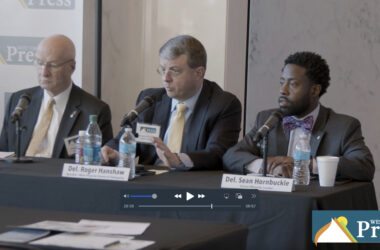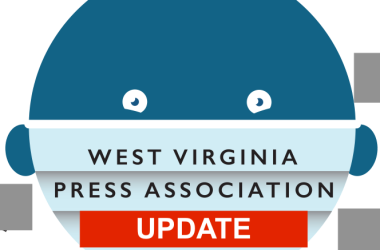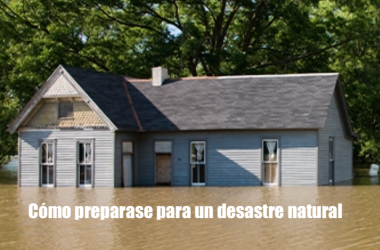CHARLESTON, W.Va. — A program to help with the funeral expenses of people who cannot afford them will run out of money by the end of the month, state officials said.
In a letter, dated Jan. 19, 2016, to Robert C. Kimes, the executive director of the Funeral Directors Association for West Virginia, from the Department of Health and Human Resources Commissioner Nancy N. Exline, the funding available to operate the Indigent Burial Program for the remainder of the state’s fiscal year ending June 2016 will be exhausted Feb. 29, 2016.
“There will be no funds to reimburse pending 2015-2016 invoices after February 2016,” the letter said. “Any of those unpaid invoices would have to be addressed in the court of claims.”
West Virginia Code 9-15-18 requires the DHHR to pay reasonable funeral expenses from the Indigent Burial Fund, a line-item in its annual budget.
A spokesman for the DHHR said the budget for the fund has been $2,050,000 annually for the past few years.
There were approximately 1,820 indigent burials in 2015, the spokesman said. There were 93 indigent burials in Wood County in 2015.
The DHHR pays $1,250 toward expenses in each case which usually covers the cost of the casket or outside container, the spokesman said.
Many families are expected to pick up around $1,200 in additional expenses. Kimes said, however, that many families would not be applying for help if they had any money to go toward funeral expenses.
“It isn’t a large amount,” Kimes said of the DHHR’s allotment.
Many participating funeral homes view these arrangements as a service to the community and an act of goodwill as funeral homes would be lucky to break even on the cost of the merchandise, he said.
Many funeral homes across the state do not participate in the program. Those who do will have to explain to families that the program is out of money and that other arrangements will have to be made.
“It is a hardship,” Kimes said.
With money unavailable at the end of the month, families will be told the fund is out of money and funeral homes will work out other options.
Exline’s letter stated if reimbursements are received by DHHR from previously paid burials, additional payments may issued from those reimbursements for pending invoices received after February 2016.
“Further, DHHR will not be in the position to issue payment from the fund if no reimbursements are received,” the letter said.
There are around 300-400 applicants a month seeking aid from the Indigent Burial Program, Kimes said.
Brent Lambert, general manager of Lambert Tatman Funeral Homes in Parkersburg and Vienna, said some families assisted through this program have had illness or circumstances take up a lot of their available money.
“There are families that need this assistance,” he said.
Funeral homes have packages that fit within the available funds and guidelines from the program.
With the program out of money, families will have to come up with the money to cover the expenses, Lambert said.
“Many funeral homes will do what they can to help, but they can’t do it for nothing,” Lambert said.
Many funeral homes try to stay away from payment options as they can get complicated over a long period of time, he said.
They will talk over less expensive options with the families, including cremation.
“This is sad for the families who really need the assistance,” Lambert said.
Jon Leavitt of Leavitt Funeral Home in Parkersburg said over the last three years the Indigent Burial Fund has been running out of money earlier and earlier.
“People are falling on harder and harder economic times,” he said. “More people have been applying to the fund. It has impacted us.”
The Funeral Directors Association, which Leavitt’s brother Steve serves on the board as president, has been working on proposals with lawmakers to address some of the issues in hopes of restructuring the program to better serve the people who need it.
Leavitt Funeral Home has been working with families to try to find a solution that meets their needs, Leavitt said.
They will discuss what resources the family has available.
“We will work with them to create a service that doesn’t create a hardship,” Leavitt said.
Cremation is becoming a more acceptable alternative to traditional burials. A cemetery near West Virginia University at Parkersburg has worked with people of limited means for burial.
Leavitt said the lack of money for this fund shows the need for families to plan ahead in considering arrangements to help ease the financial difficulties.
Legislators are working on bills to tighten requirements for those receiving assistance, focusing on cremation services and cutting down abuses to the program.
SB 377 would allow for a maximum of 2,000 cases a year with a cap of $1,000 for each case.
An effort would be made to receive payment from the individual’s family, in the order of the spouse, the children, the father, the brothers and sisters and the mother.
Under the bill, the Indigent Burial Program would redefine funeral service expenses to mean expenses for cremation unless it is against the person’s religion or otherwise prohibited by federal law, state law or regulation.
Kimes said most funeral services average $7,500-$8,500 with the cost of a casket, container, embalming and any formal services.
In other states, indigent burials are done on the local level with some city governments expected to pick up the cost, he said. Kimes estimates it would take around $4 million annually to cover the Indigent Burial Program.
“We are looking for a workable middle and still be able to help,” he said. “We are trying to work with the Legislature. We look at legislative changes in the process to benefit indigent persons and not break the funeral home director.”
Kimes said funeral directors want to be able to help those in need when they can.
However, it is still a business and certain responsibilities have to be met for them to be able to remain in business, he said.
“It is hard for a funeral home to lose money on a consistent basis and still be a viable business,” Kimes said.
According to Exline’s letter, the program will resume at the start of the new fiscal year.
“The Department plans to reopen the Indigent Burial Program on July 1, 2016 when the Program reopens,” the letter said. “Only applications for individuals who received burial services after July 1, 2016 will be accepted.”
To read more from the Parkersburg News and Sentinel, subscribe here.




